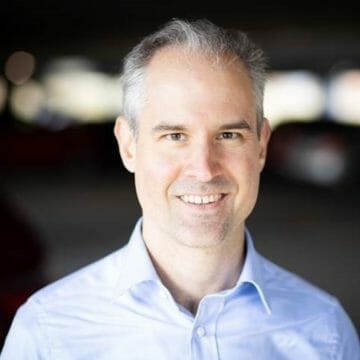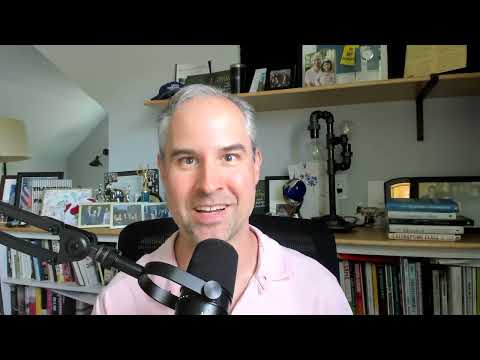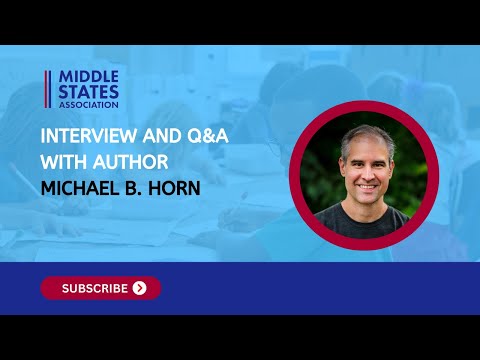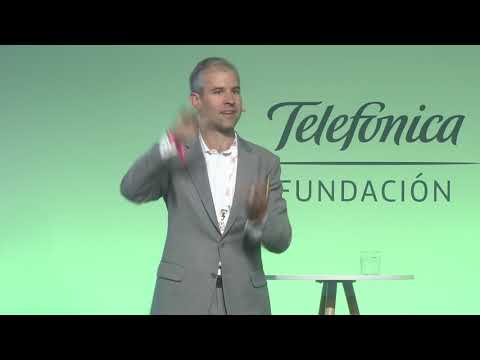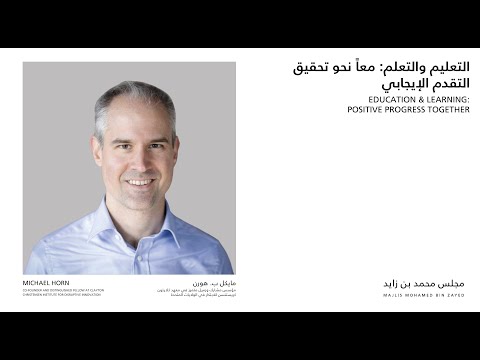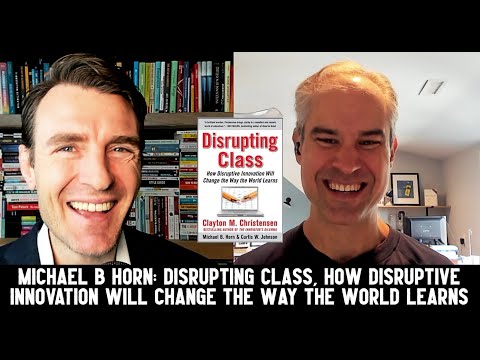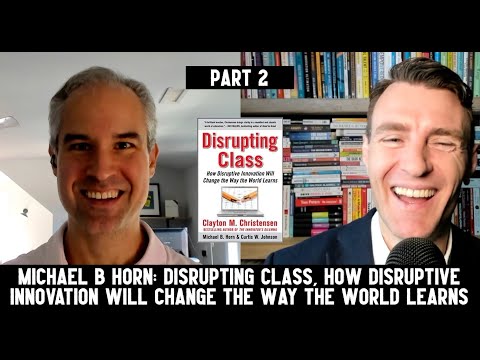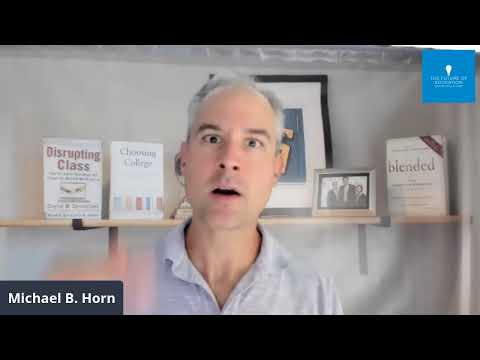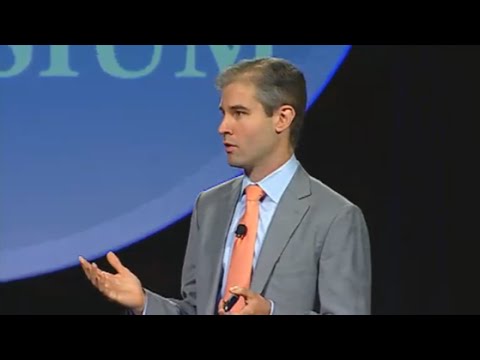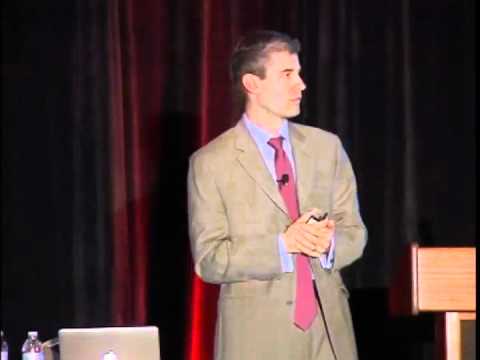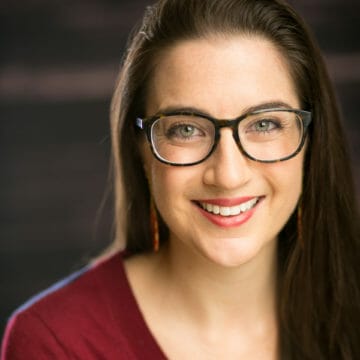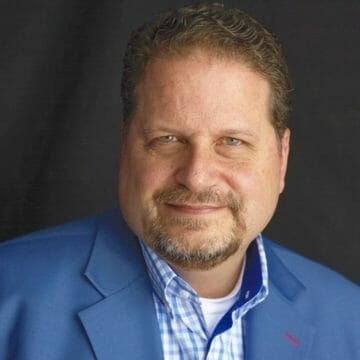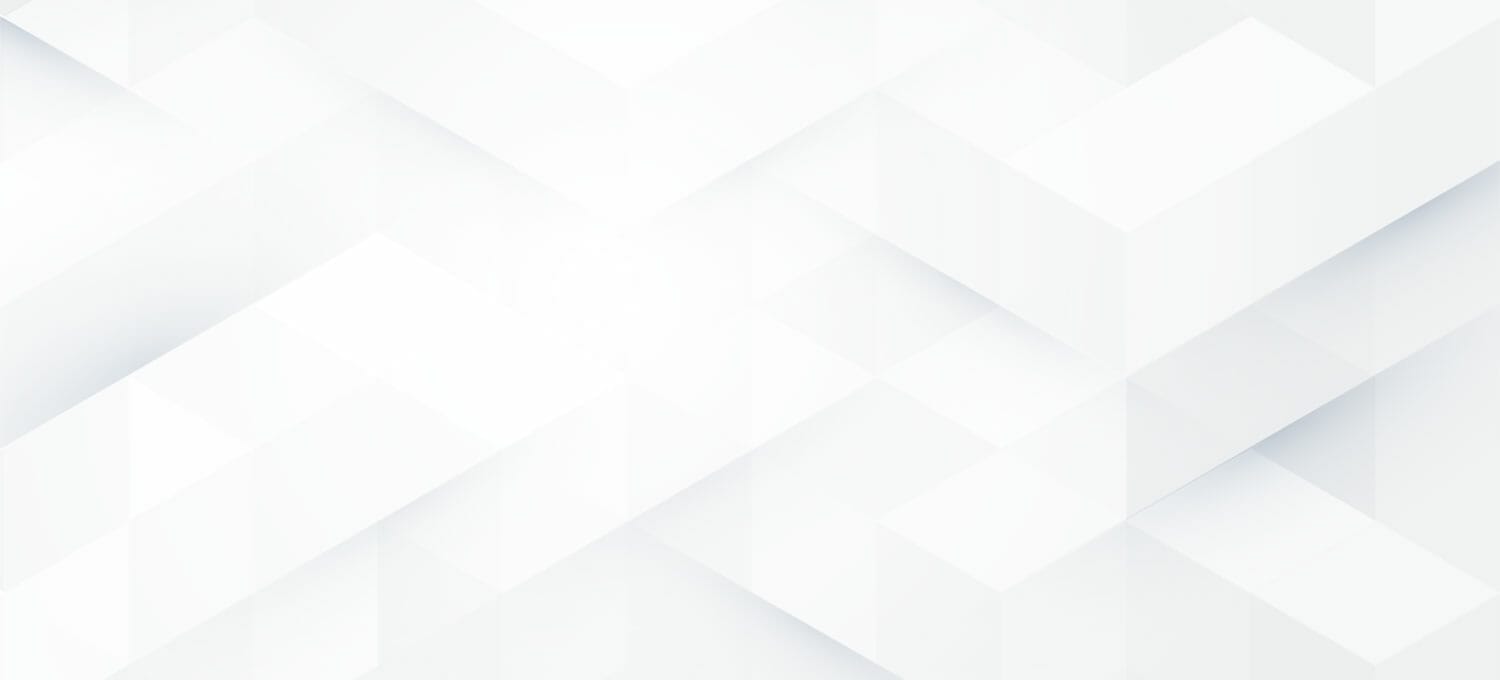Videos
Learn More About Michael B. Horn
As the pandemic accelerated change across the world, many companies had no choice but to quickly transition to digital or automated systems to stay relevant. Finding and training people to operate those systems, however, proved a bit more challenging.
For more than 20 years, renowned digital education strategist Michael Horn – a transformative authority on the future of work and learning – has been teaching leaders in every sector how to recruit, train and retain workers who can successfully and continually learn new technologies and skills. Co-founder of the Clayton Christensen Institute for Disruptive Innovation, Horn is committed to making sure businesses, educators and employees at every level of an organization succeed in today’s and tomorrow’s digital economy. Part of Horn’s work at Guild involves helping Fortune 1000 employers such as Walmart and Disney support ongoing education for employees using a friction-reducing technology platform that processes payments – the first of its kind to focus on frontline employees.
“The fact that companies invested in a ton of technology and automation during the pandemic hasn’t diminished the need for employees. It just means they need to equip their workforce with new skill sets,” explains Horn, who has advised a range of successful education startups including many that have seen exits. “There’s a massive need for upskilling. And since there are many diverse employees on the front lines, we’re also helping businesses successfully promote diversity, equity and inclusion by creating pathways for those employees to move up in the ranks.”
A long-time advocate for transforming higher education so students are well-positioned to succeed in the future, Horn’s research-based frameworks and insights, combined with his enthusiasm and optimism, are a winning combination. An executive editor at Education Next and a senior contributor to Forbes, he also hosts two podcasts: Class Disrupted and Future U. Both shows are chock-full of conversations with leading thinkers in the education and digital learning spaces who are focused on shepherding a new generation of workers and businesses into the future. They also discuss education reform and related policies needed to support that effort.
An award-winning co-author of five books, including “Choosing College: How to Make Better Learning Decisions Throughout Your Life” (2019), Horn says that while two-thirds of American K-12 students are failed by the country’s educational system, there’s still hope. As an advisor, speaker and author, he is bringing about much needed changes by providing guidance and practical frameworks to business leaders, talent managers, policy makers and educators. As for the future of learning, Horn supports the idea of improving online learning, not banning it. In his forthcoming book, “From Reopen to Reinvent: (Re)Creating School for Every Child” (Summer 2022), he will share his vision for what K–12 schools should look like after the pandemic.
“Bucking the poor online experiments of 2020-21 and launching a robust virtual school as part of a broader strategy to escape today’s one-size-fits-all system can be a tremendous positive — but only if districts take a thoughtful approach,” says Horn. “They should view their plans not as concrete, fixed documents, but as the beginning of a planning process that they will continue to revise as they launch and learn from the facts on the ground.”
# # #
Michael Horn speaks and writes about the future of education and works with a portfolio of education organizations to create a world in which all individuals can build on their passions and fulfill their potential. An award-winning author and co-author of multiple books, white papers and articles on the digital transformation of education, including “Disrupting Class,” written with the late Harvard Professor Clayton Christensen, and the Amazon bestseller “Blended,” written with Heather Staker, he serves on the board and advisory boards of a range of domestic and international education organizations, including the Clayton Christensen Institute, the Robin Hood Learning+Tech Fund and the LearnLaunch Institute. A Lecturer on Education at the Harvard Graduate School of Education, he also serves as an executive editor at Education Next, an advisor at Guild, and is a venture partner at NextGen Venture Partners. An expert on the global “EdTech” revolution, Horn was selected as a 2014 Eisenhower Fellow to study innovation in education in Vietnam and Korea, and Tech&Learning magazine named him to its list of the 100 most important people in the creation and advancement of the use of technology in education. Michael holds a bachelor’s degree in history from Yale University and an MBA from the Harvard Business School.
Michael Horn is available to advise your organization via virtual and in-person consulting meetings, interactive workshops and customized keynotes through the exclusive representation of Stern Speakers & Advisors, a division of Stern Strategy Group.
AI in Education: A New Choice for Innovation
AI represents a potentially disruptive technology — the kernel around which major disruptive innovations that reinvent whole systems can be built. But just because it represents such an inflection doesn’t mean AI will be used that way, says Michael Horn, pioneering digital learning strategist focused on securing the future of businesses and award-winning author of five books on the future of learning. Each education organization — each school, college, university — now confronts a choice. In this presentation, Horn reveals how organizations can implement AI as a sustaining innovation to improve what they do currently, or implement it in a new business or organizational model to launch a disruptive innovation. Or they can deploy a dual transformation strategy and do both. The key is recognizing the importance of building new models around the AI, not assuming that the technology alone represents a silver bullet.
Upskilling and Reskilling: A Win-Win for Organizations and Employees
When the pandemic imposed strict social distancing standards, many companies went digital by investing in robots, technology and automation. While that initially affected a segment of workers, digital learning strategist Michael Horn – a leading authority on the future of work and education – has a more optimistic long-term view. A senior strategist at Guild Education, Horn works closely with Fortune 1000 employers as Guild helps them facilitate upskilling and reskilling to secure jobs, as well as the company’s future. In this presentation, he explains why (contrary to popular myths) robots will NOT be stealing our jobs, how the future of work will cast humans and robots as co-workers, and why the pandemic simply accelerated what was already an inevitable transition to a digital future.
The New Classroom: What We Learned from the Pandemic
Learning gaps and unique individual needs have always been there for students, but the pandemic laid bare just how widespread those gaps and needs are. In 2020, forced online schooling not only gave learners options, it allowed for more students to be reached – as long as they had computers and Wi-Fi. In this presentation, digital learning strategist Michael Horn – a leading authority on the future of work and education – discusses the lessons learned during the pandemic and why we need an equitable system that ensures all students have access to online learning. He also outlines valuable digital learning tools and explains why the future of education must include online options.
Higher Education: A Cost-Effective New Model
In today’s education landscape, colleges are struggling to meet the needs of students as well as businesses facing shortages of skilled workers. There’s a growing sense that a degree is no longer worth the time, money and effort. So how can higher education institutions transform their model into something that works for everyone in the 21st century? In this presentation, Michael Horn – a leading authority on the future of work and education – outlines ways colleges and universities can gain a competitive edge and thrive. Since no two institutions are exactly alike, Horn helps participants evaluate gaps between the desired goals of their organization and existing efforts so they can develop and implement a nimble, discovery-driven path toward success that requires the least amount of capital investment.
K–12 Education Post-Pandemic: What We Take With Us and What We Leave Behind
Policies that create access to online learning are outpacing policies that transform the system and focus on learning outcomes. The focus on outcomes is a positive trend – it makes sense to pay providers not just for serving students but also for student performance. But we must also eliminate the input-focused rules that dictate how school leaders accomplish these goals, says digital learning strategist Michael Horn, a leading authority on the future of work and education. In this presentation, he examines policies that need to be struck down – from those dictating student-to-teacher ratios, teacher certification requirements or rules governing seat time. He then outlines a framework that will allow institutions and educators to position future generations for success.

Bridging the Digital Divide to Engage Students in Higher Education
(EIU Microsoft Education, December 2020)

Choosing College: How to Make Better Learning Decisions Throughout Your Life
(Jossey-Bass, September 2019)

The Future of Student Aid: Advancing New Models to Expand Access, Improve Quality, and Spur Innovation in Education
(Entangled Solutions, May 2017)

A Blueprint for Breakthroughs: Federally Funded Education Research in 2016 and Beyond
(The Clayton Christensen Institute for Disruptive Innovation, May 2016)

Disrupting Law School: How Disruptive Innovation Will Revolutionize The Legal World
(The Clayton Christensen Institute for Disruptive Innovation, March 2016)

Schools as Community Hubs: Integrating Support Services to Drive Educational Outcomes
(The Brookings Institute, September 2015)

Moving Beyond College: Rethinking Higher Education Regulation for an Unbundled World
(American Enterprise Institute, August 2015)

The Educator's Dilemma: When and How Schools Should Embrace Poverty Relief
(The Clayton Christensen Institute for Disruptive Innovation, June 2015)

Disrupting Class, Expanded Edition: How Disruptive Innovation Will Change the Way the World Learns
(McGraw-Hill, August 2010)

Is K-12 Blended Learning Disruptive? An Introduction of the Theory of Hybrids
(The Clayton Christensen Institute for Disruptive Innovation, May 2013)

Disrupting College: How Disruptive Innovation Can Deliver Quality and Affordability to Postsecondary Education
(Innosight Institute, February 2011)

Rethinking Student Motivation: Why Understanding the 'Job' is Crucial for Improving Education
(Innosight Institute, September 2010)
Praise for "Choosing College"
“Choosing College with its deliberate frame of employment-centric concepts used to take a fresh look at the confusing and opaque world of life long learning and higher education choices resonates with me as a parent of three college-aged daughters, an education executive, a former college instructor and a public policy wonk. Since the Great Recession, consumers of education (primarily parents and students) have increasingly sought tangible information on the return on their education investment. Yet, nowhere has that been harder to find, than in the college admissions process. Horn and Moesta bring a new and timely framework to this vital decision-making process and families, like mine, as well as education leaders across many disciplines and sectors will find their insights applicable to the critically important life-long learning sector.”
“Choosing College is a great guide for families and students to navigate the very complicated river of life at the college selection stage. Like a seasoned set of river pilots, Horn and Moesta guide you through the twists and turns and help keep you off the sand bars of stress. This book helps you to find “your” way as there is no “the” way. It is a great personal guide to a very complex process.”
“This book is not a guide to college selection. It’s a thoughtful and clear pathway for all learners to make the best decisions about who they are, what they want to do and what schools, colleges and universities should provide to help them get there.”
“’Choosing College’ tackles one of the most complex and foundational decisions facing society today. Michael Horn and Bob Moesta go beyond dissecting the decision and formulating a return-on-investment. They frame a systemic approach to assist the reader in making a customized decision that is best for every individual. The break-through approach is the application of the popular innovation methodology (jobs-to-be-done) as a means of providing the reader with a pragmatic step-by-step model to make the most informed choices for their unique situation. As a business leader, an education advocate and a father, I found myself completely immersed in the content and in the resolution. I highly recommend this book to anyone contemplating the value and choices of pursuing continuing education.”
“By focusing on the different reasons why students choose to go to college, Michael Horn and Bob Moesta offer an entirely fresh approach to coping with the admissions process. Learners contemplating further education at every stage of life will gain important insights from this book. So will educators who wish to serve their students better.”
“Does the world need yet another college guide book? It most certainly needs this fresh and insightful book from Michael Horn, who eschews the usual catalog of college profiles and instead focuses on the prospective student and the jobs they need college to do for them. Based on research, thousands of student profiles, and informed by a deep understanding of higher education, ‘Choosing College’ should be read together by students and their families and used as a way to frame the often fraught conversation about choosing the right college. Choosing the right college remains an often befuddling and irrational process. This book changes all that not because it provides better answers. It provides better questions and that’s what has long been needed. If you are considering college, this should be the first book you read. It may be the only one you’ll need.”
“This is a friendly, pragmatic, accessible guide demystifying what is an often intimidating and stressful decision attended by an intimidating and stressful process. The authors focus on self-knowledge and the all-important personal “why”—why college, why now, why a particular type of institution, etc. rather than the elitist, extrinsic agenda-driven approach of too many college guides. I wish we’d had this book when our children were making their higher education decisions; I wish I’d had it when I was making mine.”
“In offering 21st century advice in ‘Choosing College’ to students and parents about what to seek in a college experience, Michael Horn and Bob Moesta also lead counselors, teachers, and higher education leaders to examine what they are offering today’s applicants. Introducing “The Jobs to be Done” concept is a practical guide for sparking reflection, relevance, and renewal across the teaching and learning spectrum. I found how Horn and Moesta provide personal human stories on top of extensive data to be extremely effective driving home key points. This book provides an engaging approach to students and parents making critical decisions about college; even better, it pushes higher education leaders to make decisions that will sharpen their institution’s relevance to learners with different needs. And for policymakers confronting tough decisions about higher education, ‘Choosing College’ is a good starting point for matching how well a state’s institutions are meeting today’s student and workforce needs.”
“The strength of American higher education is that it provides so many pathways, but this rich tapestry of options can appear to students as confusing and stressful. Students seeking clarity and a way to connect learning and further education to their current circumstances and life goals will benefit by using the “Jobs to be Done” framework of Horn and Moesta. Colleges and universities can also gain insights from exploring this framework as a new approach to understanding how learning experiences and student life circumstances can better connect.”
“Too many books focus on how to get into college without starting with the more fundamental question: Why are you going and how will you make it count? Horn and Moesta have developed a powerful framework to help students and the adults who support them, putting purpose and agency at the heart of the college decision process. And the world will be better for it!”
“Choosing College removes the mystery around educational choices and provides a framework to help people deeply understand why they are considering more education…this book gives them the knowledge and tools to make the right life decisions. This is a critically important and timely work that should be read by all who want to advance their lives through learning.”
“Horn and Moesta shed novel light on what is really at work when students choose college. By helping us all focus on what we really seek from college and therefore what really matters to us, they open up rich new terrain for thinking better about one of the most important, and often expensive, choices we make. As a parent, this book helped me rise above brand chasing towards smart matching. As a leader in higher education, this feels like a needed wake up call at a crucial moment in history to setting mission and focusing priorities for institutions to move beyond trying to be all things to all people.”
“Choosing to attend or return to college is a critical life decision. Students “hire” a college to do many things. But many prospective students don’t fully recognize the criteria on which to make their choice. Sometimes educational “jobs-to-be-done” are well understood and sometimes they are more tacit. Michael Horn and Bob Moesta have captured and articulated the jobs students hire a college to do in a compelling and intuitive way. Better understanding these jobs can more effectively inform student choice. It can also better inform how colleges and universities can serve students and the jobs they are hired to do through their education. This book is as helpful to the prospective student as it is to the university administrator. Choosing College provides a significant contribution to the work of higher education and our collective efforts to better serve students.”
“Michael Horn and Bob Moesta deliver insight after insight about why students choose college… and how to serve them better. “Choosing College” is a roadmap for leaders in the new world of higher education.”
“For almost every individual, the question of college – whether to go, where to go, what major – is one of those life-changing decisions? And while the data continues to support the attainment of post-secondary credentials as the surest path to opportunity, the college choice is decidedly a personal one. In ‘Choosing College,’ Michael and Bob expertly apply the Jobs to be Done theory to this seminal question, resulting in an incredibly relevant and useful guide for individuals, and those that support them, to evaluate their own reasons and purpose for attending college. It further highlights how and why different learners need different models and options to be successful. The research, personal stories, data and conclusions weave a compelling narrative, whether you are a first-time, returning or continuing learner.”
“College is still one of the greatest avenues to personal opportunity in the world. But the stakes now are higher, and the financial investment demands that we make good choices about where and how to pursue education. There is no better guide than the thoughtful and insightful Michael Horn to help us understand what matters in college, what we can expect from a degree, and how to make the most of the college experience. If you are looking for one book to guide your choice, start here!”
“In ‘Choosing College,’ Michael Horn and Bob Moesta dive into the complexities of making learning decisions and emerge with clear, compassionate guidelines for both learners and educators.”
“Michael Horn and Bob Moesta offer sensible and compassionate advice for students and parents alike. By reframing the college choice to focus on the actual reasons that people pursue a degree, ‘Choosing College’ cuts through the mountains of rumor, hype, and sheer misinformation that typically surround this important decision. ‘Choosing College’ is clear, concise, and well-informed.”
“Michael captivated Indiana educators, business leaders, and community members at the IACTE Summit November 7 – 8, 2019. Michael’s thought-provoking and innovative presentation gave all of us something to think about as it relates to creating new educational models, coaching educators, and transparency vs. accountability. Although Michael shared challenges, he also shared some innovative practices and solutions that were well received in Indiana. More people need to hear and learn from Michael B. Horn.”
“Michael is a pro when it comes to how technology is shaping the future of PK-12 education. As a speaker, he does his homework, he is easy to work with, he manages technology with ease and he responds to audience questions thoughtfully. He was well received as both a keynote speaker and webinar thought leader. We look forward to working with him again in the future.”
“The attendance at the 2015 Niswonger Foundation School Success Symposium was the largest ever. Comments from our teachers and administrators have let us know they are talking and making plans to use personalized learning in their classrooms. Michael opened the door to new thinking and answered many questions. It was amazing for our educators to hear the local, state, and national views on personalizing learning for our students.”
